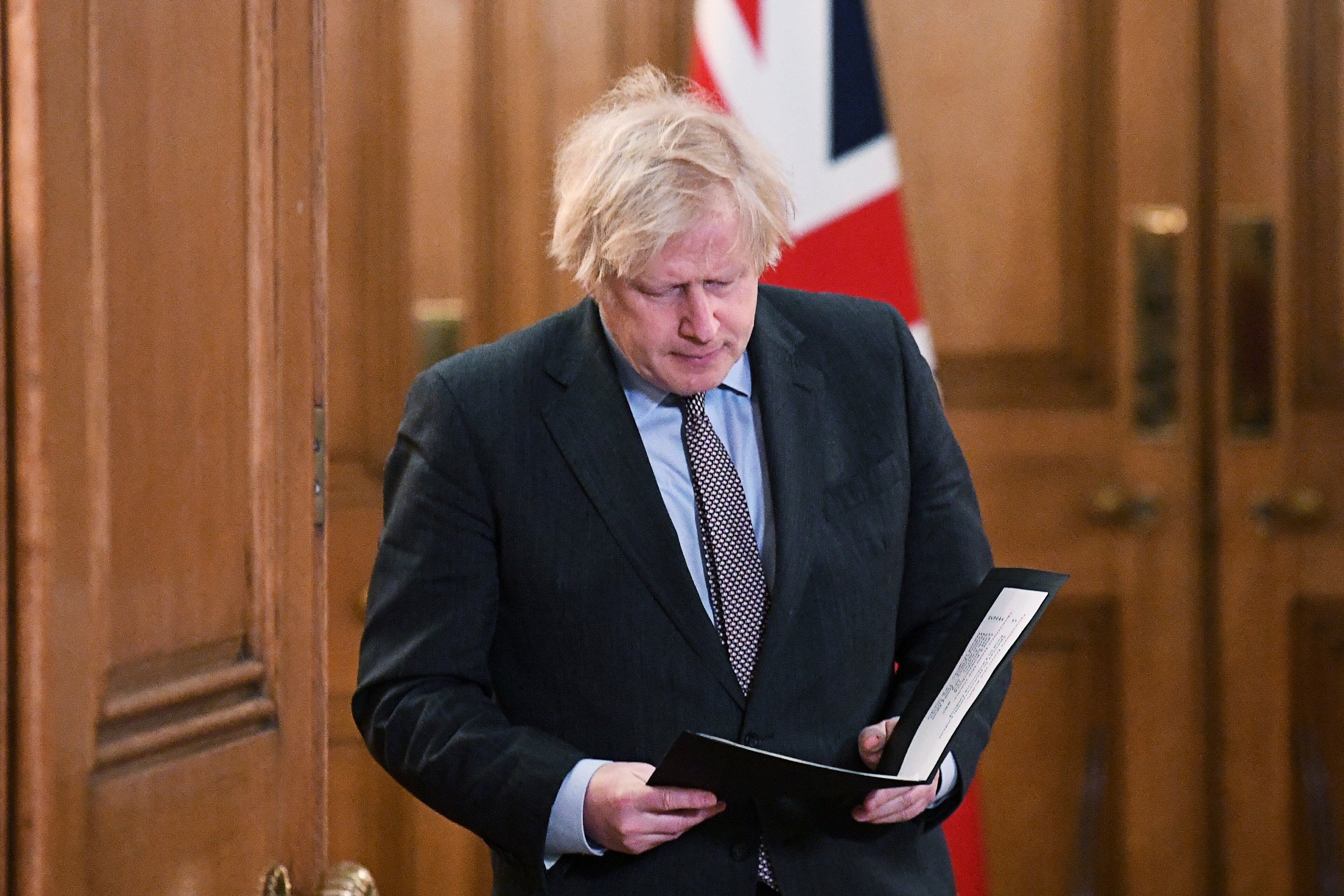Ministers told to publish impact assessment of removing £20-per-week universal credit increase
Exclusive: MPs urge government to release impact report 'so plans can receive proper scrutiny'

Your support helps us to tell the story
From reproductive rights to climate change to Big Tech, The Independent is on the ground when the story is developing. Whether it's investigating the financials of Elon Musk's pro-Trump PAC or producing our latest documentary, 'The A Word', which shines a light on the American women fighting for reproductive rights, we know how important it is to parse out the facts from the messaging.
At such a critical moment in US history, we need reporters on the ground. Your donation allows us to keep sending journalists to speak to both sides of the story.
The Independent is trusted by Americans across the entire political spectrum. And unlike many other quality news outlets, we choose not to lock Americans out of our reporting and analysis with paywalls. We believe quality journalism should be available to everyone, paid for by those who can afford it.
Your support makes all the difference.Ministers are being urged to publish an internal government assessment probing the impact of removing the £20-per-week increase in universal credit payments on low-income families and poverty levels in Britain.
It comes as discussions between the Treasury, No 10 and the Department for Work and Pensions (DWP) continue over the future of the uplift, which was introduced at the onset of the coronavirus pandemic to give struggling families extra support.
Rishi Sunak, the chancellor, is reported to be pushing against the extra payments, costing £6 billion annually, becoming permanent despite intense opposition from some Conservative MPs, opposition parties and anti-poverty campaigners.
Work and pensions secretary Therese Coffey told MPs on Wednesday that no decision had been reached on whether to extend the payments and it is expected Mr Sunak will announce any changes to the scheme at the Budget in March.
In response to a freedom of information request, the DWP told The Independent it had carried out an analysis of the impact of removing the £20-per-week uplift on low income families and poverty in Britain.
The department declined to release the information, however, citing an exemption because ministers are still formulating the universal credit policy. It said the “DWP is satisfied in this instance the public interest in maintaining the exemption outweighs the public interest in disclosure”.
In response, the shadow work and pensions secretary Jonathan Reynolds told The Independent: “The government’s planned cut of £1,000 a year for millions of families will be a hammer blow to family finances, they should be honest about that fact.
“The public deserve to know what assessment the government has made on the impact this cut will have on poverty. Britain has had the worst recession of any major economy because of this government’s incompetence and indecision – yet they want struggling families to pay the price.”
The Scottish government published its own impact assessment on withdrawing the emergency benefit measure last year, claiming that more than 60,000 people in the country, including 20,000 children, would “be plunged into poverty”.
In January, the Resolution Foundation think-tank also warned that millions face the sharpest drop in living standards in a generation and the decision on whether to keep the benefit boost “will help define whether this is to be a parliament of ‘levelling up’ living standards, or pushing up poverty”.
Ed Davey, the Liberal Democrat leader who described the uplift in universal credit as a “lifeline” for millions of families, added: “Government must immediately publish the impact assessment in question, so their plans can receive proper scrutiny.”
“Instead of plotting to pull the rug from under the feet of struggling families, the government should commit to extending the uplift in the March budget, and give countless households the security they need.”
A government spokesperson told The Independent: “We are committed to supporting the lowest-paid families through the pandemic and beyond to ensure that nobody is left behind.
“That’s why we’ve targeted our support to those most in need by raising the living wage, spending hundreds of billions to safeguard jobs, boosting welfare support by billions and introducing the £170 million Covid winter grant scheme to help children and families stay warm and well-fed during the coldest months.”
It is expected that Mr Sunak will announce a final decision at the Budget next month, but is also reportedly considering a one-off payment of £1,000 or £500 to claimants to avoid the universal credit uplift becoming permanent.
Join our commenting forum
Join thought-provoking conversations, follow other Independent readers and see their replies
Comments